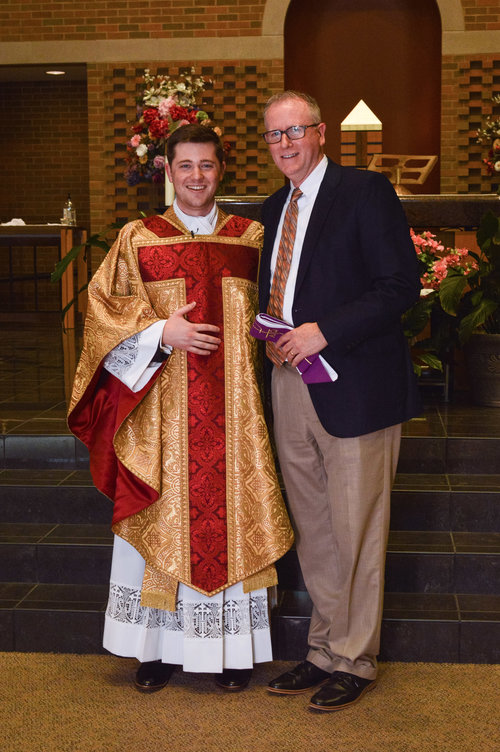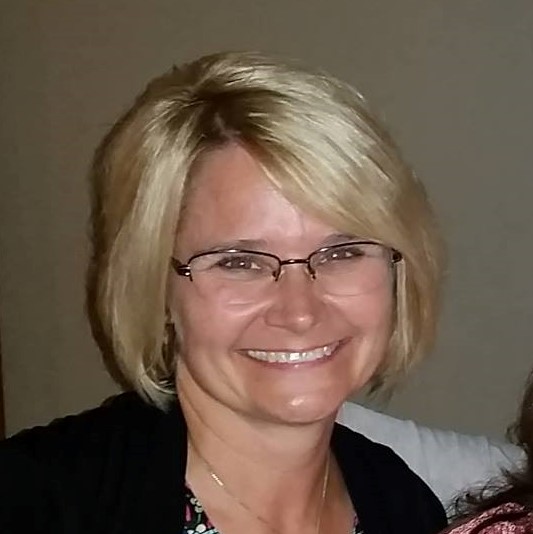Following is the “Meet a Reader” feature that appears in the current print edition of The Catholic Post.
How you know me:
I am Fr. Andru O’Brien, one of the two men that Bishop Jenky ordained this past May. I am now serving at St. Jude Parish in Peoria. I graduated in 2010 from Normal Community and immediately entered seminary. During summers I have spent time in Peoria, LaSalle, Pontiac, Monmouth and Oglesby. For school, I was sent to Immaculate Heart of Mary Seminary in Minnesota, Mundelein Seminary in Chicagoland, and then I finished my studies off at Mount St. Mary’s in Maryland. If one were to go back through all the seminarian posters from my time, they would notice a year I do not appear. I spend a year studying with the Archdiocese of Atlanta where my family lives, but immediately came home earning me the affectionate nickname amongst some of our older priests of “The kid who left and came back.”
Why I love reading:
When one sits down to write, the pages serve as a blank canvas. The boundaries are non-existent and the possibilities endless. The only thing an author puts down on the page is what moves them at the deepest level. Always approaching books with this mindset, reading has become for me an encounter with another’s most personal experience of reality. And when reading is done well, it also becomes a dialogue between the author and us. In non-fiction I always ask if my experience confirms what the author is saying or not. In fiction we are able to enter into the mind of a character to feel what they are feeling. While most modern entertainment has become a break from life, reading has always been more attractive to me because it allows me to engage life on an even deeper level.
What I’m reading now:
I always have a few books going at a time. Right now I have going a biography of Don Luigi Giussani, the founder of the ecclesial community Communion and Liberation. For spiritual reading I am working through St. Gregory the Great’s Pastoral Rule. On the fiction side, I am reading Michael O’Brien’s Sophia House. This is the prequel to a trilogy focused around a priest named Father Elijah.
O’Brien is a master of character development, and this book is entirely devoted to the early life of Father Elijah. Growing up as a young Jewish boy, he escaped the Nazis and ended up in Israel where he would discover Catholicism and the Carmelite Order before being called to Rome on a special mission for the Pope. The storyline shows a young boy’s exposure to good and evil in a dramatic way that makes it difficult to put down.
Along with Sophia House, I am also reading A Devotional Journey into the Mass by my old professor Christopher Carstens. In it he breaks open the various parts of the Mass to show how one can more fully answer Vatican II’s call for ‘active participation’ in all the faithful. He successfully shows that Mass is only boring when we do not understand what is actually happening before us.
My favorite book:
It is difficult to name just one book as my favorite, so here is an overview of the favorites. Anything by Pope Benedict XVI is amazing, but topping the list are his work The Spirit of the Liturgy and the Jesus of Nazareth trilogy.
A book that I have found myself going back to again and again is Becoming Human by Jean Vanier. Vanier is a philosopher by trade, who left his position at university to work with the disabled in his organization L’Arche. In this work, he speaks of the lessons that he has learned from his time with the L’Arche community. To a world filled with competition and individualism, he shows a Christian perspective of human life and flourishing. It is absolutely brilliant.
Finally, I will throw out Brave New World by Aldous Huxley. In this book, Huxley depicts a society free of pain and full of stimuli, but when one character breaks from the mold he discovers a world much greater than the ‘perfect’ society he had previously known.















